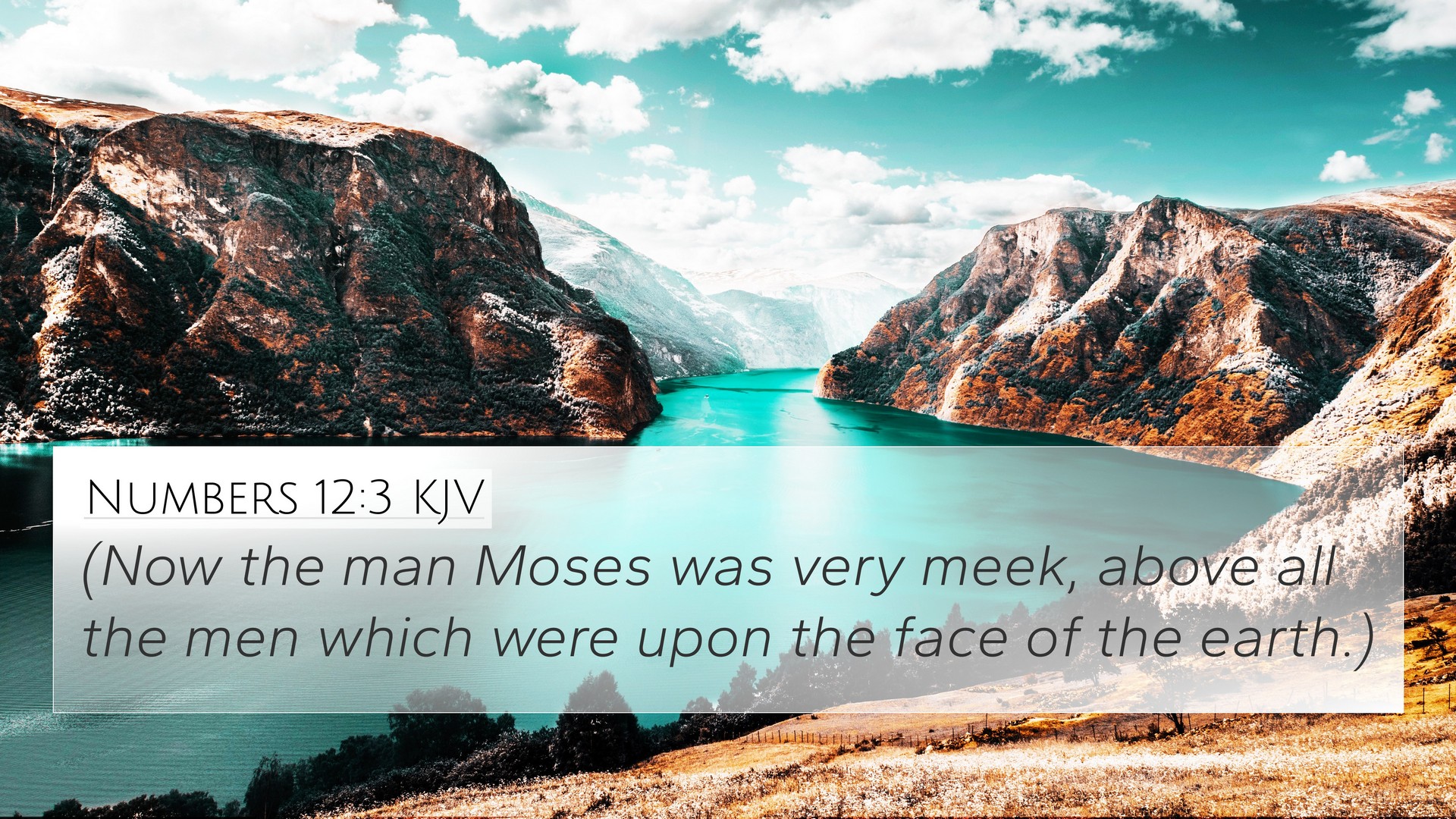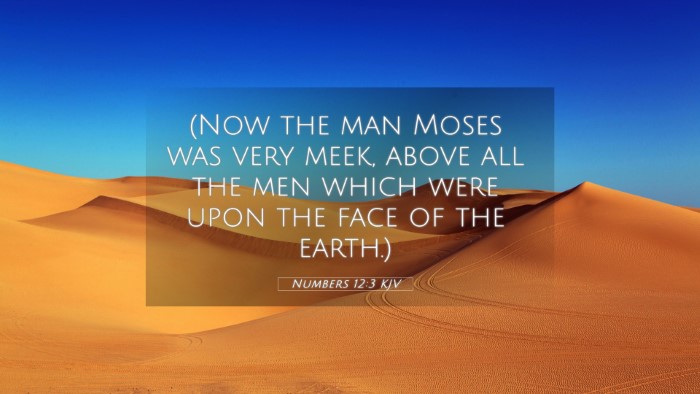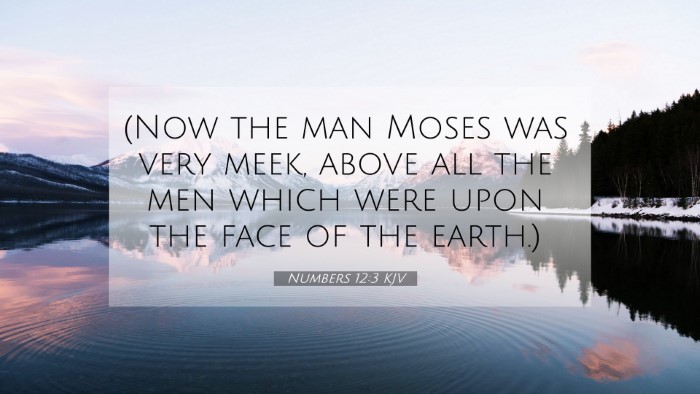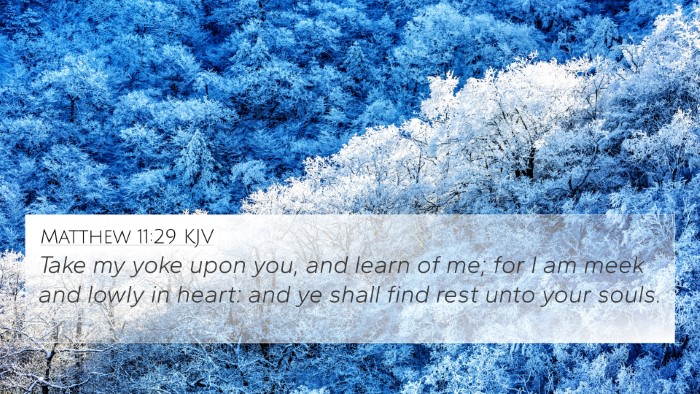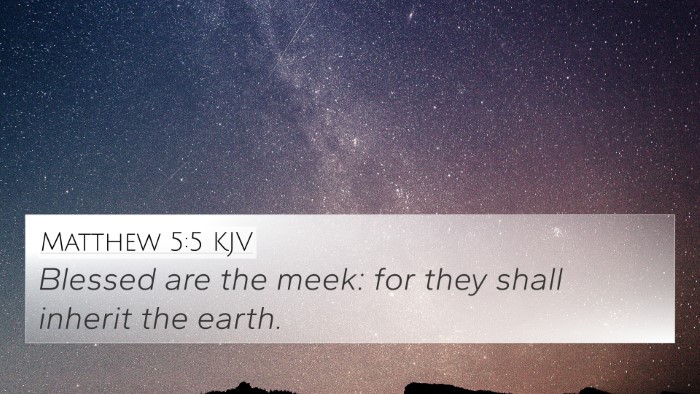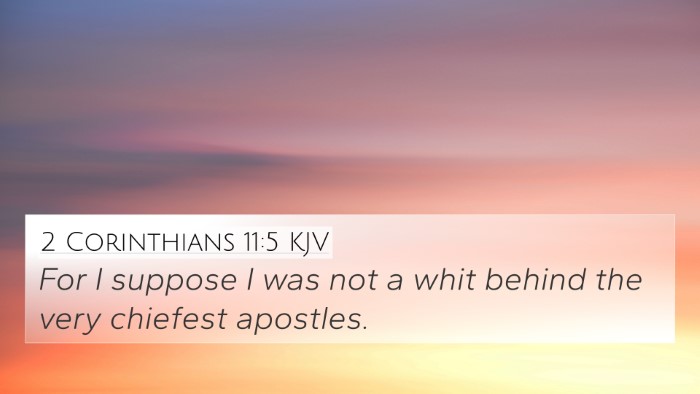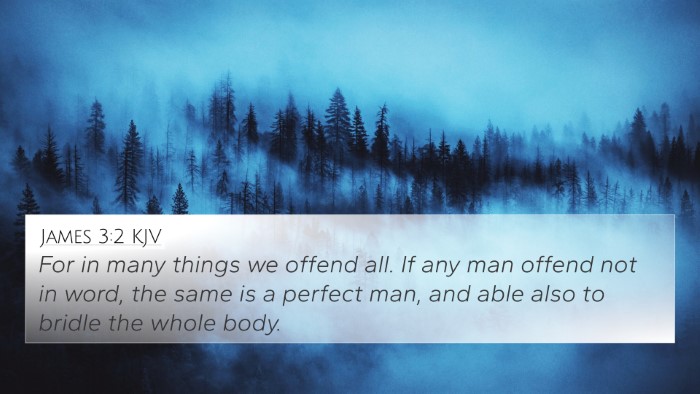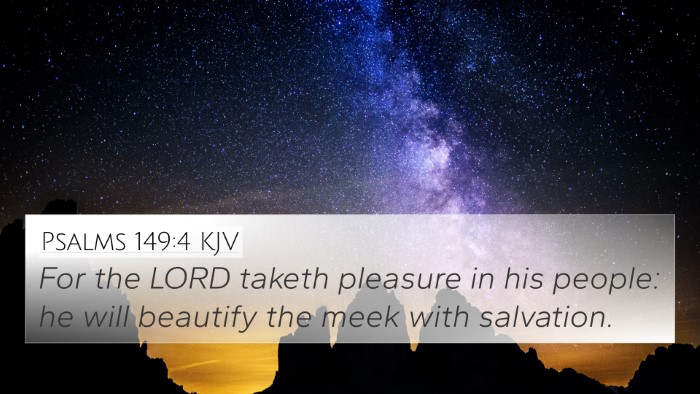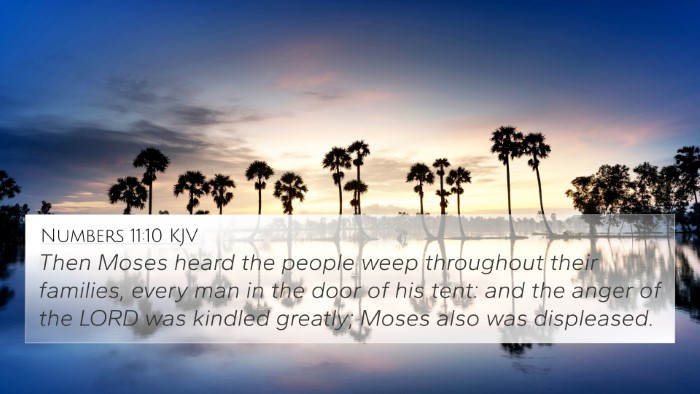Understanding Numbers 12:3
Verse: "Now the man Moses was very meek, above all the men which were upon the face of the earth." (Numbers 12:3)
Summary of the Verse
In this verse, we see a profound statement regarding Moses's character. The term "meek" is highlighted, indicating not only humility but also an inner strength that comes from a gentle and self-controlled spirit. This contextualizes Moses’s leadership, revealing essential qualities that set him apart from others.
Insights from Public Domain Commentaries
Matthew Henry's Commentary
Matthew Henry emphasizes the exceptional nature of Moses’s meekness, suggesting that it is rare and valuable. He points out that meekness is not weakness; rather, it is a power that is under control. Henry interprets Moses’s demeanor as a reflection of his close relationship with God, demonstrating that true meekness stems from divine submission and trust.
Albert Barnes's Notes
Albert Barnes elaborates on the notion of meekness by pointing out that it is a quality admired in leaders. He refers to it as "humility of mind," which facilitates effective leadership. Barnes also notes that this characteristic allows Moses to bear the complaints and challenges he faces without losing his temper or acting impulsively. The commentary highlights how Moses serves as a model for spiritual leaders by reflecting Christ-like humility.
Adam Clarke's Commentary
Adam Clarke offers a deeper examination of the Hebrew word used for "meek." He notes that it connotes a sense of submission, especially toward God and His will. Clarke also recognizes that this meekness could be seen as the foundation of Moses’s authority, as it established his credibility and approachability among the people of Israel. He encourages readers to aspire to such meekness, seeing it as critical in any relationship, especially with God.
Related Bible Cross References
- Matthew 5:5: "Blessed are the meek: for they shall inherit the earth." - This verse reflects the importance and promise associated with meekness.
- Psalms 37:11: "But the meek shall inherit the earth; and shall delight themselves in the abundance of peace." - Highlights the blessed state of the meek.
- Philippians 4:5: "Let your moderation be known unto all men. The Lord is at hand." - Encourages gentleness among believers.
- Galatians 5:23: "Meekness, temperance: against such there is no law." - Meekness is part of the fruit of the Spirit.
- James 1:21: "Wherefore lay apart all filthiness and superfluity of naughtiness, and receive with meekness the engrafted word, which is able to save your souls." - Addresses how to receive God’s Word with a meek heart.
- 1 Peter 3:4: "But let it be the hidden man of the heart, in that which is not corruptible, even the ornament of a meek and quiet spirit, which is in the sight of God of great price." - Affirms the value of a meek spirit.
- Exodus 3:11: "And Moses said unto God, Who am I, that I should go unto Pharaoh, and that I should bring forth the children of Israel out of Egypt?" - Reflects Moses's humility before God's call.
The Importance of Meekness in Scripture
Throughout the Bible, meekness is presented as a vital biblical theme. It is often linked with strength through surrender and reflects a deep trust in God’s plan. Meek leaders are portrayed as effective and credible, facilitating unity and guidance among their followers.
Conclusion
Numbers 12:3 serves as a testament to the character of Moses and the principles of meekness that are foundational in biblical teachings. Understanding this verse within the larger context of Scripture allows believers to see the importance of humility and self-control in their own lives as a reflection of Christ's teachings.
